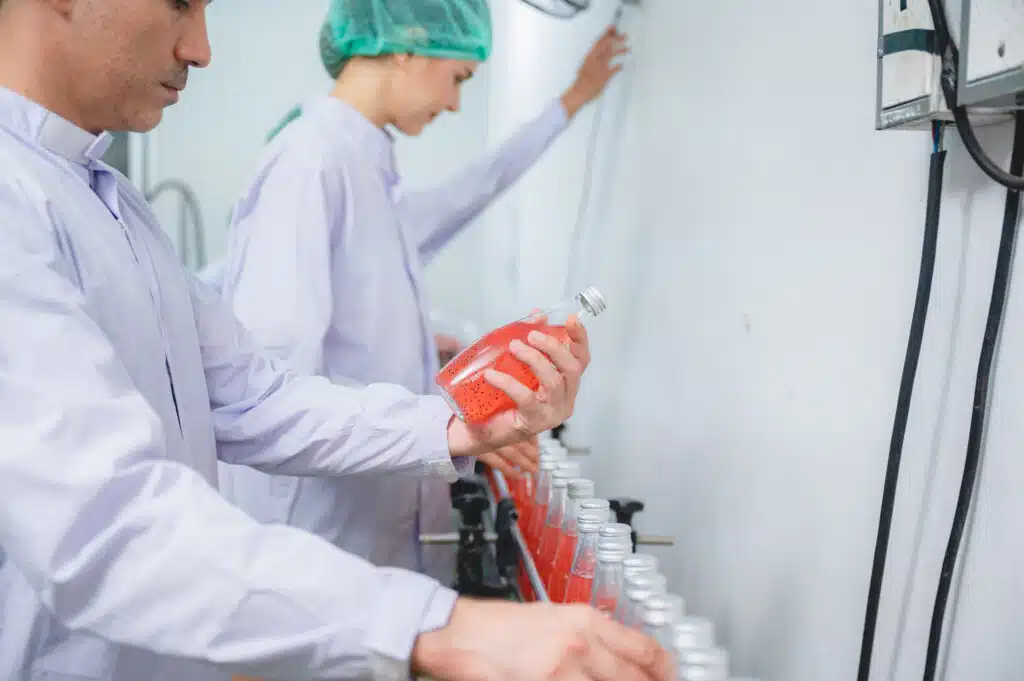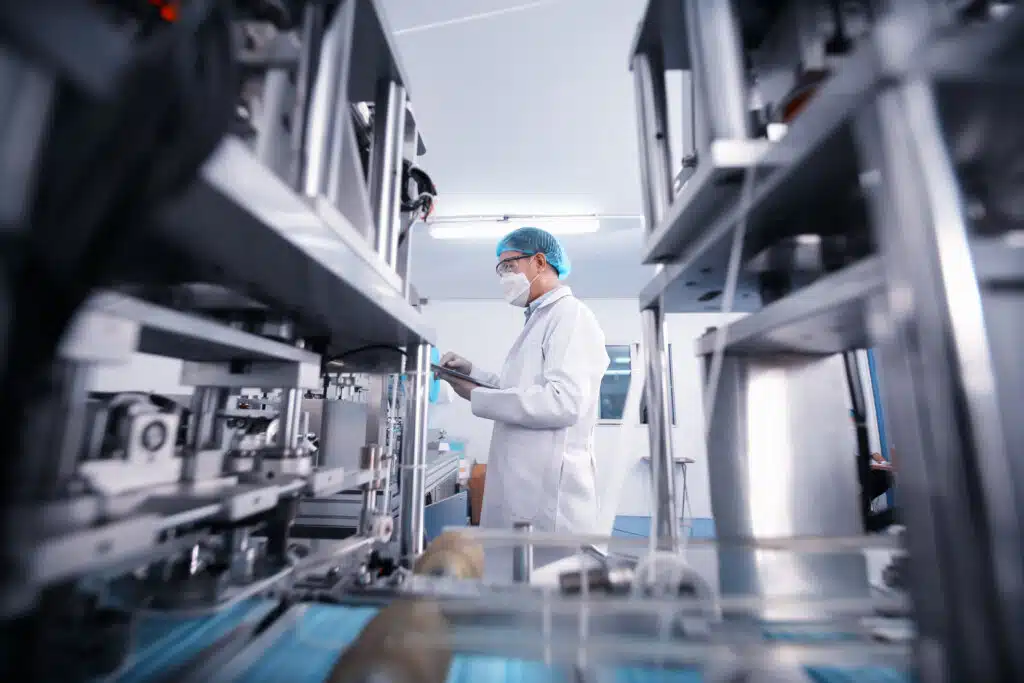When it comes to sourcing products for your retail business, you may be wondering what the difference is between white label, private label, and wholesale products. In this article, we will be discussing the pros and cons of each option and helping you determine which one is the best fit for your business. With the right choice, you can choose the best manufacturer for your products. Discover Wonnda as the best way to find the perfect manufacturer for your business.
What Are the 4 Types of Private Labels?
Private labels aren’t a one-size-fits-all concept. They vary depending on the depth of customization and market strategy.
- Generic Labels: These are basic products with minimal branding and marketing. They typically adopt a plain “no-name” appearance and are devoid of any frills. The primary focus is on affordability.
- Copycat Labels: These products closely resemble popular mainstream branded products in quality and design. Retailers use copycat labels to offer alternatives that might look and feel like known brands but at more competitive prices.
- Premium Store Labels: These are high-quality products that rival or even surpass national brands in terms of performance and packaging. Exclusively available at specific retailers, they offer consumers an option to buy top-tier products without the brand-name price tag. This might be a good option for those looking to produce under the “made in Europe” quality stamp.
- Value Innovator Labels: These focus on delivering products that provide unique value or features, differentiating them from both generic and national brands. This category allows retailers to cater to niche market demands or introduce innovative solutions at competitive prices.
By understanding these classifications, retailers can tailor their private label strategy to cater to various customer needs, maximizing both reach and profitability.
What is the main difference between white label and private label?
In the broad branding and product distribution spectrum, three prevalent terms are white label, private label, and wholesale. While they often get interchanged, each has its unique characteristics.
White Label products are essentially generic items manufactured in bulk and then customized minimally, mostly in terms of branding and packaging. These products are offered to a range of retailers. Their major advantages include quicker production times, due to predetermined standards, and lower costs since there’s minimal room for unique specifications.
Private Label products, conversely, are designed and manufactured specifically for one brand or retailer. They allow for extensive customization, ranging from the product’s core formula to its packaging design. While this offers exclusivity, the tailored approach can slow down the production process and drive up costs due to unique specifications.
Wholesale, distinct from both private and white labels, refers to the bulk buying of goods, either branded or generic, to be resold by retailers. Wholesalers act as intermediaries, sourcing products in significant volumes and then selling them to retailers in lesser quantities. There’s little to no customization involved, and the emphasis is on volume and distribution.
Here’s a table summarizing the differences:
| Aspect | White Label | Private Label | Wholesale |
|---|---|---|---|
| Customization | Limited (branding & packaging) | High (product to packaging) | None (reselling as is) |
| Exclusivity | Available to multiple retailers | Specific to one brand/retailer | Offered to various retailers |
| Production Speed | Faster (preset standards) | Slower (unique specs involved) | N/A (focus on volume) |
| Cost | Generally lower | Potentially higher | Depends on volume and product |
| MOQ | Varies but often lower | Typically higher due to customization | Depends on wholesaler, usually lower |
Understanding these distinctions can help brands and retailers make informed decisions about product sourcing and branding strategies.


What is White Labeling?
White labeling refers to the practice of producing generic products designed for branding by multiple resellers. While these products permit branding alterations, such as logos, colors, packaging, and marketing materials, there’s a limitation on changing the core product itself.
Pros:
- Faster production due to existing factory settings.
- More affordable since customizations are minimal.
- Low minimum order quantities, given its broad-based distribution.
- A wide array of manufacturers, with platforms like wonnda.com as a resource.
- Ready samples from manufacturers for inspection.
Cons:
- Reduced control over the actual product features.
- The brand takes on all post-purchase responsibilities, even for manufacturing issues.
- Potential complications with international EU regulations on certain products.
What is Private Label Production?
Private labeling involves manufacturing products that are custom-made for a specific brand. While the production framework exists, there’s an allowance for tweaking the formula, design, and other product attributes to align with the brand’s vision.
Pros:
- An ideal blend of cost-saving and customization.
- A comprehensive list of manufacturers, with platforms like Wonnda providing direction.
- Generally lower MOQs compared to other methods like contract manufacturing.
Cons:
- Potentially longer production timelines due to customizations.
- Iterative sampling can be time-intensive and might incur added costs.
What is Wholesale?
Wholesaling encompasses the process where intermediaries buy products in bulk from manufacturers and then make them available to retailers. This step streamlines the acquisition process for retailers aiming to provide these goods to their customers.
Pros:
- Either nonexistent or very low MOQs, offering retailers flexibility in order size.
- Streamlined acquisition process, eliminating negotiations, and sampling stages.
- Typically closer to retail points than direct manufacturers, reducing transportation hassles.
Cons:
- Constrained differentiation given the bulk nature of products.
- Per unit cost might be higher than buying directly from a manufacturer.
- Extended supply chains might lead to unforeseen delays or stock shortages.


Why Can Private Label Products Be More Expensive Than White Label Products?
Navigating the financial intricacies of branding can be challenging. A recurring question is why private label products tend to be pricier than their white label counterparts. The crux of this lies in customization. Private label products undergo tailor-made specifications, requiring more intricate alterations in the manufacturing process.
They are unique to a specific brand, meaning they don’t benefit from the economies of scale that white label products do. Furthermore, the research and development phase for these products often demands more resources, both in time and money, adding to their overall cost.
Examples of Private Label, White Label and Wholesale
To better grasp the differences between private labeling, white labeling, and wholesale, it’s beneficial to visualize them in real-world contexts.
Private Label
Imagine creating a skincare line, and seeking a unique edge in the market. They collaborate with a manufacturer to create a unique formula for an anti-aging face cream. The brand handpicks every ingredient and the texture of the cream, and once finalized, this product is produced exclusively for this brand with their logo, name, and branding elements. It’s their proprietary product, distinct from others in the market.
White Label
Imagine a fitness retailer looking to introduce a new line of multivitamin supplements to their catalog but doesn’t possess the capability to formulate and produce them. They approach a manufacturer that produces generic, unbranded vitamin supplements.
The retailer then purchases these dietary supplements, applies their logo and branding to the packaging, and subsequently markets them as their unique brand of vitamins. To the end consumer, it seems like this retailer has an exclusive line of supplements. However, in reality, the base product might be available under multiple other brand names with their respective branding.
Wholesale
Picture a boutique store that wants to offer a diverse range of home decor items. Instead of sourcing these products from a plethora of individual brands, they decide to buy from a wholesaler. This wholesaler has a broad collection of home decor items gathered from various manufacturers. The boutique store buys these items in large quantities, enjoying a reduced price for bulk purchases.
Once these items are in stock, they are sold in the store for the general public, targeting local commerce or smaller businesses. There might be small additions like price tags or store-specific labels, but the core products are essentially the same as when they were acquired from the wholesaler.


How to Decide Which is Right for You?
The decision between private label, white label, or wholesale is pivotal and depends on multiple factors. Private labeling might be your best bet if you prioritize brand differentiation and wish to stand out.
However, if you’re on a budget and need products swiftly, white labeling offers a quicker and often more economical route. Wholesale can be an excellent choice for those looking to stock up on a diverse range of products without the intricacies of manufacturing.
In every decision, it’s essential to gauge your target audience’s needs and align it with your brand positioning in the market. Platforms like Wonnda offer valuable insights to find the best manufacturing fit tailored to your business requirements.